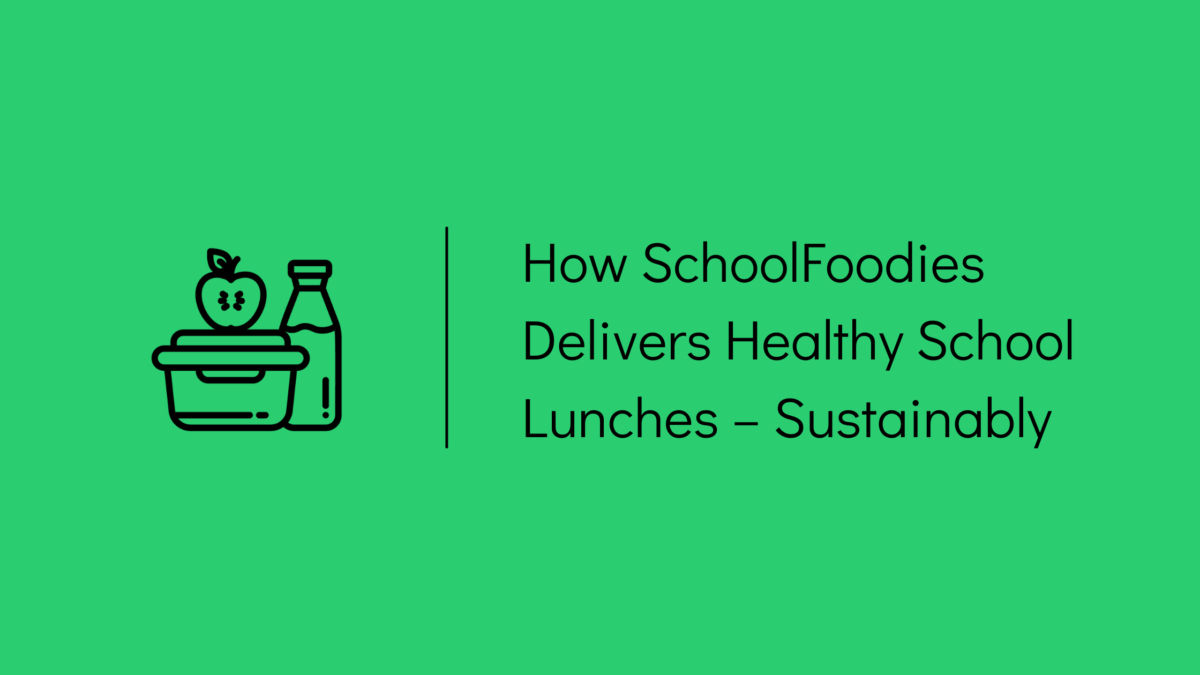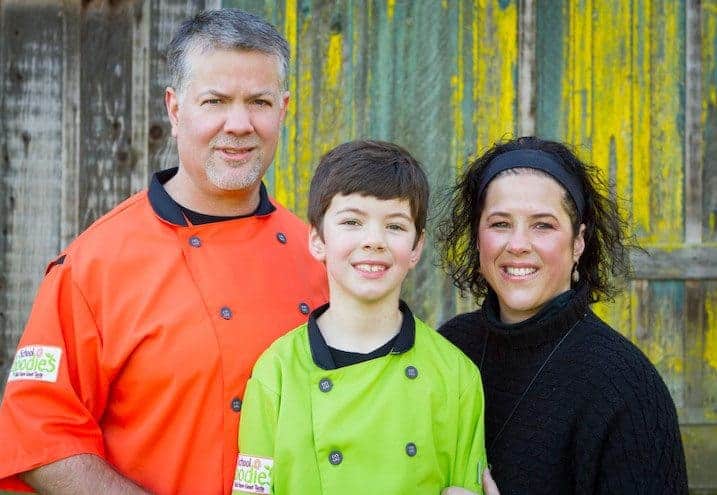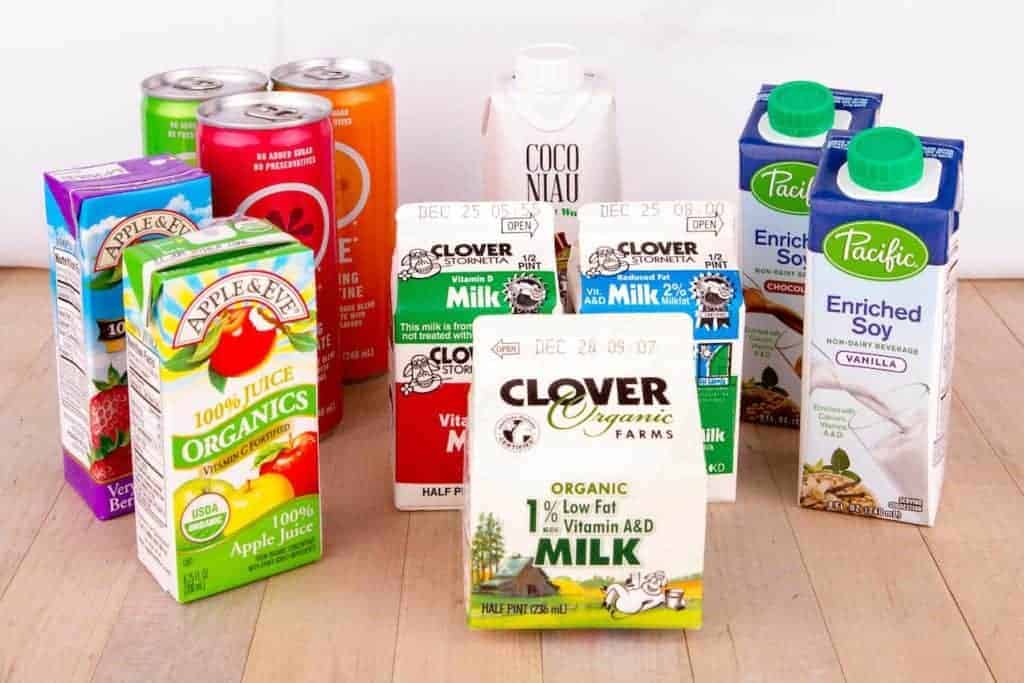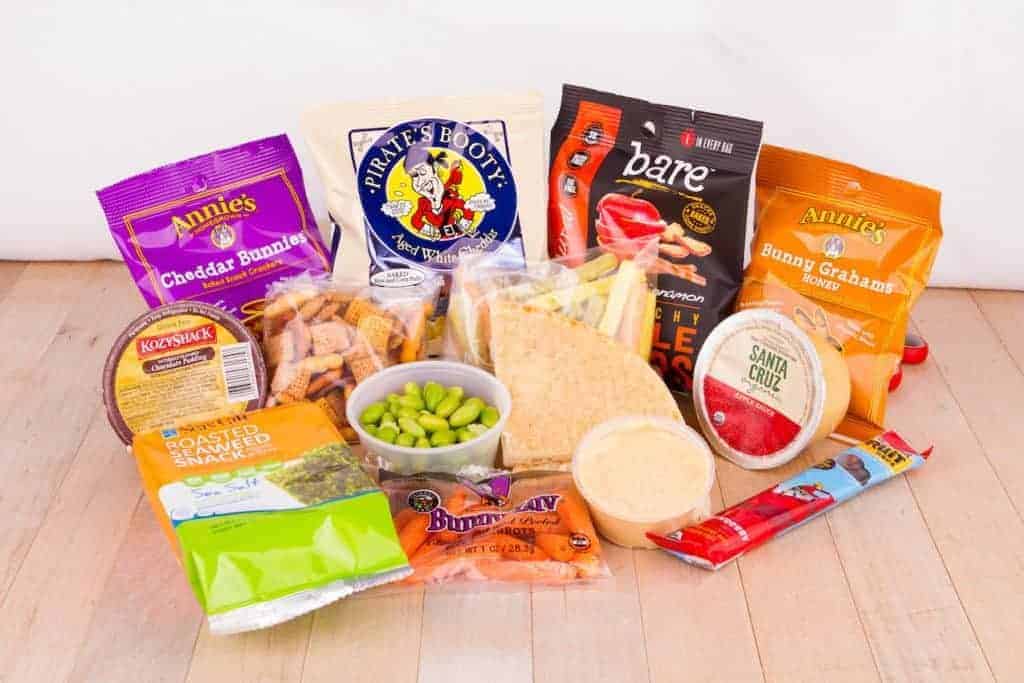
The best part of the work that I do is getting to meet awesome business owners and professionals who are doing really great work. In this ongoing series, I’ll be sharing some of these stories to provide real-life examples of sustainability in action.
SchoolFoodies is an online food delivery program that delivers healthy school lunches to schools, daycares, and summer camps. Parents can order customized, locally sourced and made-from-scratch meals online that SchoolFoodies delivers fresh every day. They currently serve 60 accounts around the Bay Area and nearly 2,500 meals per day.
Their meals are packaged in compostable containers made of wheat straw fiber that decompose in 60-90 days. In an effort to reduce pesticide exposure, they source their produce according to the Environmental Working Group’s “Dirty Dozen” and “Clean Fifteen,” and also provide organic meal and snack options.

The family-run business started in 1958 as Upton’s Catering and shifted its focus to cafeteria services and catering to schools in 1976. Dennis King took over the family business in 2006 and launched Schoolfoodies that same year.
1. What are some of the ways in which you incorporated environmental considerations into the building of your facility? Why did you choose to implement these features and/or practices?
When we were going through our Green Business Certification, we were able to take advantage of a program through Alameda Municipal Power and Ecology Action that helped us change our lighting to T8 fluorescent bulbs at nearly no cost. We use only green sanitizers and cleaners for our kitchens and all of our equipment is Energy Star certified. Our food transport units are energy efficient, using the same power as two light bulbs and can keep 150 containers at 140 degrees for safe serving. We don’t use a garbage disposal here. When food goes down our main sink, it goes down a scrapper and the food waste goes into the compost rather than the water system.
2. What has been your biggest challenge in making your business sustainable?
This year we’ve grown our services by 25%. We want to make sure that as we grow, we stick to our core values and mission. We don’t want to compromise these core values as we grow. Our core values are:
Fresh: We enjoy delivering fresh, eye appealing, delicious meals every day
Open: Our team respects, listens, communicates, and helps each other
Organized: Planning ahead and streamlining processes makes work easier
Determined: We work with focused minds at an “up-tempo” pace
Integrity: Each of us matter, our individual daily efforts generate quality
Earth: We can help our planet by reducing waste at work and at our schools
Safe: we follow our food safety guidelines to protect the children we serve
Not only is it important for us to be green here, it is equally important to help our schools and daycares in these practices such as recycling and composting. Two of our larger daycare programs are actually zero-waste. The teachers wash all the dishes and silverware that is used and return them to our facilities.
3. How have you engaged your employees in your sustainability work?
Every business wants to profitable and where there’s waste, it’s not good for business, so we always talk about ways to minimize waste. We talk about making the right amount of food to minimize food waste, turning unused equipment off to minimize energy usage, and minimizing our water usage with the devices we have installed.
These green procedures are taught to everybody when they first start and are in our employee handbook.
4. Are you involved in community activities or giving back to the community? How do you see this as being part of your overall sustainability efforts?
We moved to Alameda a couple years ago and we are looking to becoming more active in the community. When we were in San Francisco, we would go to school events related to being green. I’m involved with the schools’ Green Teams or recycling efforts and I’m always looking for more ways to be involved.
All the schools I work with are eager to be as green as possible, some more than others, but they all like the compostable materials we use and the fact that we try to use as little packaging material as possible. Many schools we work with are also Green Certified so they enjoy the fact that we are also a Green Certified Business. These schools are actively trying to teach students about conservation and reducing waste, and the students who eat our lunches see the value of sustainability.


5. Why did you choose to become a Certified Green Business? What did you learn from going through the process?
It was socially responsible and valued by our customers — our parents, students, and schools that we serve. It’s also just smart business because it reduces costs. It’s really a no-brainer to become a Certified Green Business because it helps reduce our operating costs.
I learned that small attention to detail related to water and energy can have a large impact. When we switched to our compostable containers, it reduced our packaging costs. When we changed all the lights, it reduced our bill about $200 a month. When we added water aerators, it saved $100 a month. Those small changes cumulatively saved about $4,000 a year. It’s a win-win situation: we save money and it helps the environment.
6. What advice would you give to others who are also working to make their businesses more sustainable?
I started by looking at government resources that were available such as the Alameda County Green Business Program. These folks redirected me to other programs that I could take advantage of, such as the discounted lighting program through Alameda Municipal Power and Ecology Action.